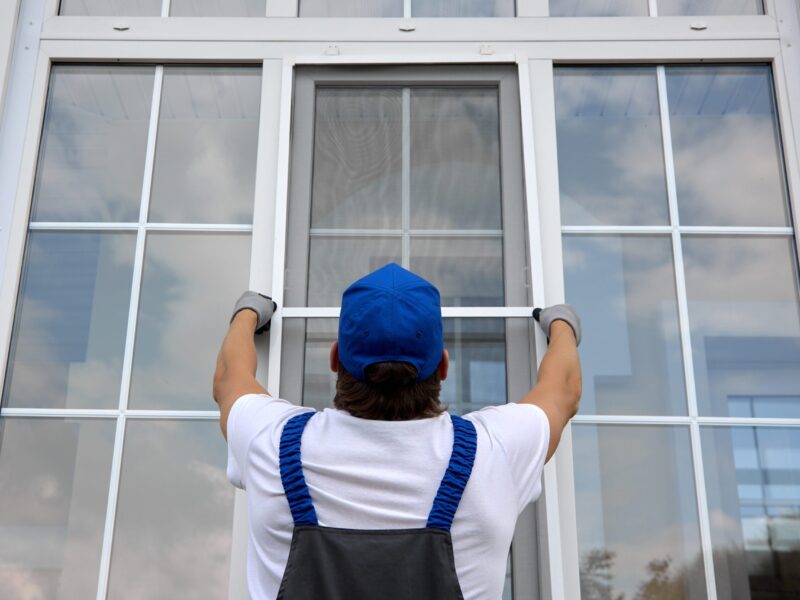The air in your home can be two to five times more polluted than the air outside. This is because of all the chemicals and particles you and your family produce, such as dust from cooking or vacuuming, pet dander, cigarette smoke, mold spores, and pollen. Ironically, these particles end up inside your home because you’re trying to keep them outside.
You should take a proactive approach in keeping your home’s air clean, rather than waiting for polluted air to make its way inside. Some simple changes around your home will go a long way in making sure you and your family are breathing safe, clean air. To learn more about keeping your home’s air quality clean, keep reading!
1. Hire a Professional HVAC Company
It is crucial to have a heating, ventilation, and air-conditioning (HVAC) service provider come out to your home and check up on your system at least once a year. A professional can help you identify problem areas and provide solutions for you. They might also install a new filter so that air quality coming into your home will be high-quality. It is essential to have this type of maintenance done regularly because these problems can worsen over time.
2. Use an Air Purifier
Houseplants are great for your home’s air quality; they provide the filtering effect of nature. But if you don’t have plants around the house, consider purchasing an air purifier. There are tons of options available for homes with various square footage capacities. In addition, air purifiers are great for homes with little kids and pets because they won’t irritate the air like heavy-duty cleaning chemicals.
The spider plant is an excellent houseplant for removing pollutants from your home’s air, which thrives on little more than a sunny window. It can also grow in low light and will help improve the quality of your water. The peace lily, another good option, does better in high-humidity environments and releases oxygen at night when it needs to cool off. Try the snake plant if you’re looking for an indoor plant that can survive with little maintenance. This plant is known as one of the best indoor air pruning and requires watering just once or twice a month.
3. Look for VOC Offenders
If you’re renovating your home, look around for products that contain volatile organic compounds (VOC) before purchasing them. These are harmful to your health and can even lead to cancer if you inhale them too much. Use caution when shopping for new furniture because many products in this category have been shown to damage health when used frequently, even if they don’t seem harmful when you purchase them.
4. Keep Your Home Well-ventilated
The quality of air inside your home will always be better if you allow enough fresh air in. Make an effort to open windows and use exhaust fans while cooking and bathing. This will get the bad air out and bring in fresh air to replace it. You can also consider purchasing an outdoor air humidifier to help the indoor air. In addition, there are a lot of portable air purifiers that you can buy to make sure your home’s air quality is as clean as possible.
5. Invest in Paint with Low Emissions
If you are repainting the walls in your home, consider purchasing zero-VOC paints. These are considered healthier for you and your family because they don’t release chemicals into the air like traditional paint products. These paints will reduce the risk of inhaling the chemicals while painting and leaving your home with a pleasant clean scent.
6. Reduce Dust Damage in Your Home
If you live in a high-humidity or dusty area, it’s essential to take extra precautions to avoid dust damage. You can use HEPA air purifiers, which are great for trapping dust particles in the air. This will keep them from settling on surfaces and furniture so that they can’t enter your lungs. You should also remember to dust surfaces and furniture regularly so that the dust doesn’t have a chance to build up.
7. Improve Ventilation in Your Kitchen
It is crucial to have good ventilation in the kitchen. If you don’t, then your house will stink. Ensure you have an exhaust fan with a vent over your stove to remove the excess steam, smells, and cooking oil. Adding an exhaust fan in the kitchen will improve your home’s air quality and make it a more pleasant place to live.
8. Use HEPA filters for Rooms with High Levels of Air Contaminants
If you have a room in your home with exceptionally high levels of air contaminants (like dirt, mold, or pollen), consider using HEPA filters. These will trap and remove particles from the air; you don’t have to worry about breathing them in. You should also remember to vacuum or sweep high-traffic areas regularly. This way, the harmful air particles will have fewer chances of settling on surfaces and furniture.
The air in your home belongs to an ecosystem, and it needs to be cared for like any other living thing. In addition, remember to look for harmful air pollutants that may threaten your health and well-being. If you have a lot of dust in your home, look into HEPA air purifiers and high-quality paint products to keep yourself safe from dangerous chemicals and particles. By taking proper care of your home’s air quality, you can breathe clean and healthy air for a lifetime.


